Did you know that nutrition plays a crucial role in achieving your fitness goals? It’s not just about hitting the gym; nourishing your fitness goals with enjoyable eating is equally important. At 3 Elements Lifestyle, we understand the power of combining fitness and nutrition to create a healthy lifestyle. In this article, we will discuss 10 healthy eating habits that can power your fitness journey and complement your workouts, helping you achieve your goals efficiently.
Key Takeaways:
- Finding balance between fitness goals and enjoyable eating is crucial for a healthy lifestyle.
- Nutrition plays a vital role in achieving optimal results.
- Incorporating healthy eating habits can power your fitness journey.
- By fueling your fitness journey with the right nutrition, you can reach your goals efficiently.
10 Healthy Eating Habits for Achieving Fitness Goals
When embarking on a fitness journey, it’s important to fuel your body with a balanced diet that supports your goals. By adopting these 10 healthy eating habits, you can optimize your nutrition and enhance your fitness journey:
- 1. Focus on Macronutrients: Ensure your meals include a good balance of proteins, complex carbs, and healthy fats to provide your body with the fuel it needs.
- 2. Prioritize Protein: Include lean sources of protein such as chicken, fish, tofu, and Greek yogurt to support muscle repair and growth.
- 3. Choose Complex Carbs: Opt for whole grains, sweet potatoes, and legumes to provide sustained energy and essential nutrients.
- 4. Stay Hydrated: Drink plenty of water throughout the day to maintain proper hydration and support optimal bodily functions.
- 5. Add Pre-Workout Snacks: Fuel your workouts with a small snack containing protein and complex carbs, such as a banana with almond butter or a Greek yogurt with berries.
- 6. Practice Moderation: Enjoy your favorite treats in moderation while maintaining a nutrient-dense approach to eating.
- 7. Embrace Nutrient-Dense Snacking: Replace processed snacks with nutrient-rich options like veggies with hummus, mixed nuts, or dried fruits.
- 8. Plan Your Meals: Take the time to plan your meals ahead to ensure you have balanced and nutritious options readily available.
- 9. Listen to Your Body: Pay attention to your hunger and fullness cues to guide your portion sizes and overall food choices.
- 10. Practice Mindful Eating: Slow down during meals, savor each bite, and be present to fully enjoy and appreciate your food.
By incorporating these healthy eating habits into your daily routine and listening to your body’s needs, you can fuel your fitness journey and achieve your goals effectively. Remember, it’s all about nourishing your body with the right nutrients while maintaining balance and enjoyment.
The Importance of a Healthy Breakfast and Balanced Carbohydrate Intake
Starting your day with a healthy breakfast is crucial for replenishing your blood sugar levels and providing the energy your body needs for both exercise and mental focus. It sets the foundation for a balanced diet and supports your overall well-being. A nutritious breakfast not only kick-starts your metabolism but also helps control your hunger throughout the day.
When planning your breakfast, aim to include a combination of complex carbohydrates, fiber, and protein. Complex carbs like whole grains, oatmeal, and quinoa offer sustained energy and help maintain stable blood sugar levels. They also provide essential nutrients and fiber that promote digestive health.
Avoid simple carbohydrates found in refined grains and sugary cereals, as they can cause a spike in your blood sugar levels, followed by a crash, leaving you feeling hungry and low on energy. Instead, opt for whole grain options that are less processed and higher in fiber.
Pairing your breakfast with a source of protein is also important as it helps keep you feeling full and satisfied for longer. Incorporate protein-rich foods like milk, yogurt, or nuts into your breakfast to enhance its nutritional value and provide your body with the building blocks it needs for muscle repair and growth.
“A healthy breakfast sets the tone for the rest of the day, providing the essential nutrients and energy your body needs to thrive.”
Benefits of a Healthy Breakfast:
- Replenishes blood sugar levels
- Provides sustained energy
- Supports mental focus
- Promotes digestive health
- Maintains stable blood sugar levels
- Controls hunger throughout the day
- Enhances nutritional intake
- Aids in muscle repair and growth
By starting your day with a healthy breakfast that includes complex carbohydrates and protein, you can fuel your body with the nutrients it needs for optimal performance and well-being. Take the time to prioritize breakfast as part of your daily routine and reap the benefits of a balanced and nutritious start to your day.
The Role of Protein in Muscle Repair and Growth
Protein plays a crucial role in muscle repair and growth. When you exercise, your muscles experience microscopic damage. Protein provides the necessary building blocks for repairing and rebuilding these damaged muscle fibers, allowing for muscle growth and strength development over time.
To support muscle repair and growth, it’s important to incorporate lean sources of protein into your meals. These sources include:
- Fish – such as salmon, tuna, and cod
- Chicken – both breast and thigh meat
- Turkey – both ground turkey and turkey breast
- Legumes – such as lentils, black beans, and chickpeas
- Tofu – a versatile plant-based protein option
- Dairy products – like milk, yogurt, and cottage cheese
- Eggs – a complete source of protein
These lean protein sources provide the necessary amino acids that support muscle recovery and growth. Including a variety of these protein-rich foods in your diet ensures that you’re getting a complete range of essential amino acids that your body needs.
While lean sources of protein should be the foundation of your protein intake, it’s also possible to include red meat in moderation as part of a balanced diet. Red meat, such as beef or lamb, can provide additional essential nutrients like iron and vitamin B12. Just be mindful of portion sizes and opt for lean cuts of meat.
So, how much protein should you consume daily for muscle repair and growth? The recommended daily intake of protein is about 0.8 grams per kilogram of body weight. However, this amount may vary depending on factors such as your activity level, age, and overall health goals. If you engage in regular exercise or if you’re an older adult, you may need to consume slightly more protein to support muscle maintenance and recovery.
Remember that protein is just one piece of the puzzle when it comes to optimizing your muscle repair and growth. It’s also important to maintain a balanced diet that includes other macronutrients like complex carbohydrates and healthy fats. Consult with a registered dietitian or a healthcare professional to determine the ideal protein intake and overall nutrition plan that aligns with your specific needs and goals.
By understanding the role of protein in muscle repair and growth, you can make informed choices when it comes to selecting your protein sources and creating a well-rounded diet that supports your fitness goals.
The Benefits of Hydration and Nutrient-Dense Snacking
Proper hydration is often underestimated but plays a crucial role in overall health and fitness. Water intake is essential for maintaining energy levels, aiding in digestion, and supporting numerous bodily functions. To stay hydrated throughout the day, it is recommended to drink water regularly, not only during workouts but also before and after them. In fact, it is important to drink a certain amount of water based on your weight.
While water is the primary source of hydration, alternatives like herbal tea can also be beneficial. Apart from providing hydration, herbal teas offer additional health benefits depending on the specific blend. Some herbal teas are known for their antioxidant properties, while others can aid in digestion or promote relaxation.
Nutrient-dense snacks are a great way to fuel your body and maintain energy levels throughout the day. Here are some examples:
- Veggies with hummus: Raw vegetables like carrots, cucumbers, and bell peppers paired with a serving of hummus provide a satisfying crunch and a balance of nutrients. Hummus is a good source of protein and healthy fats, while vegetables offer essential vitamins and minerals.
- Mixed nuts: A handful of mixed nuts, such as almonds, walnuts, and cashews, can provide a combination of healthy fats, protein, and fiber. Nuts are also rich in antioxidants and other beneficial compounds.
- Greek yogurt: Greek yogurt is a nutrient-packed snack that offers a good amount of protein, calcium, and probiotics for gut health. You can add toppings like fresh fruits or a drizzle of honey for extra flavor.
By incorporating these nutrient-dense snacks into your daily routine, you can satisfy your hunger, curb cravings, and ensure your body gets essential nutrients. These snacks are portable, easy to prepare, and can be enjoyed on-the-go or as part of a balanced meal.
Conclusion
Finding balance in combining your fitness goals with enjoyable eating is essential for a sustainable and healthy lifestyle. By incorporating the healthy eating habits discussed in this article into your daily routine, you can power your fitness journey and achieve your goals more efficiently.
Remember that sustainable progress is achieved through consistent and balanced efforts both in the gym and in the kitchen. It’s not just about hitting the gym; it’s also about fueling your body with the right nutrition. By nourishing your body with a balanced diet and making consistent efforts, you can achieve the results you desire.
Take the time to plan your meals, choose nutrient-dense snacks, and listen to your body’s needs. Stay hydrated and pair your meals with lean sources of protein to support muscle repair and growth. Understanding the importance of a healthy breakfast and balanced carbohydrate intake can also contribute to your overall fitness journey.
So, as you embark on your fitness journey, remember that achieving balance, sustainable progress, and consistent efforts are key. By fueling your fitness journey with the right nutrition, you will not only reach your fitness goals but also maintain a healthy lifestyle for years to come.
FAQ
Why is finding balance between fitness goals and enjoyable eating important?
Finding balance in combining fitness goals with enjoyable eating is essential for a sustainable, healthy lifestyle. By incorporating healthy eating habits into your routine, you can power your fitness journey and achieve your goals more efficiently.
What are some healthy eating habits that can help me achieve my fitness goals?
– Start your day with a healthy breakfast that includes complex carbohydrates and protein.
– Incorporate lean sources of protein into your meals.
– Stay properly hydrated by drinking water regularly throughout the day.
– Choose nutrient-dense snacks to keep your energy levels steady.
– Listen to your body and practice moderation.
Why is a healthy breakfast and balanced carbohydrate intake important?
Starting your day with a healthy breakfast replenishes your blood sugar levels and provides the energy your body needs for exercise and mental focus. Choosing complex carbohydrates like whole grains, oatmeal, and quinoa helps maintain stable blood sugar levels and keeps you feeling full for longer.
What is the role of protein in muscle repair and growth?
Protein is essential for muscle repair and growth. Incorporating lean sources of protein into your meals, such as fish, chicken, turkey, beans, lentils, tofu, and dairy products, provides the necessary amino acids to support the recovery and growth of muscles.
What are the benefits of hydration and nutrient-dense snacking?
Proper hydration is crucial for overall health and fitness. Drinking water regularly throughout the day helps to stay energized and aids in digestion. Nutrient-dense snacks like veggies with hummus, mixed nuts, or Greek yogurt provide essential vitamins, minerals, and antioxidants and help keep your energy levels steady.
How can I achieve balance and sustainable progress in my fitness journey?
Achieving balance and sustainable progress requires consistent, balanced efforts both in the gym and in the kitchen. By fueling your fitness journey with the right nutrition and listening to your body, you can reach your fitness goals and maintain a healthy lifestyle.
Source Links
- https://www.healthline.com/health/fitness-exercise-eating-healthy
- https://www.linkedin.com/pulse/10-healthy-eating-habits-fuel-your-fitness-goals-dixon-troyer
- https://thestay-at-home-momsurvivalguide.com/achieve-balance-food-fitness/
Related Articles
Transform Your Body: Most Viral Weight Loss Strategy
Balanced Diet for Strength Training: What to Eat for Muscle Gain
Your Guide to Balanced Fitness & Nutrition: Stay Healthy!
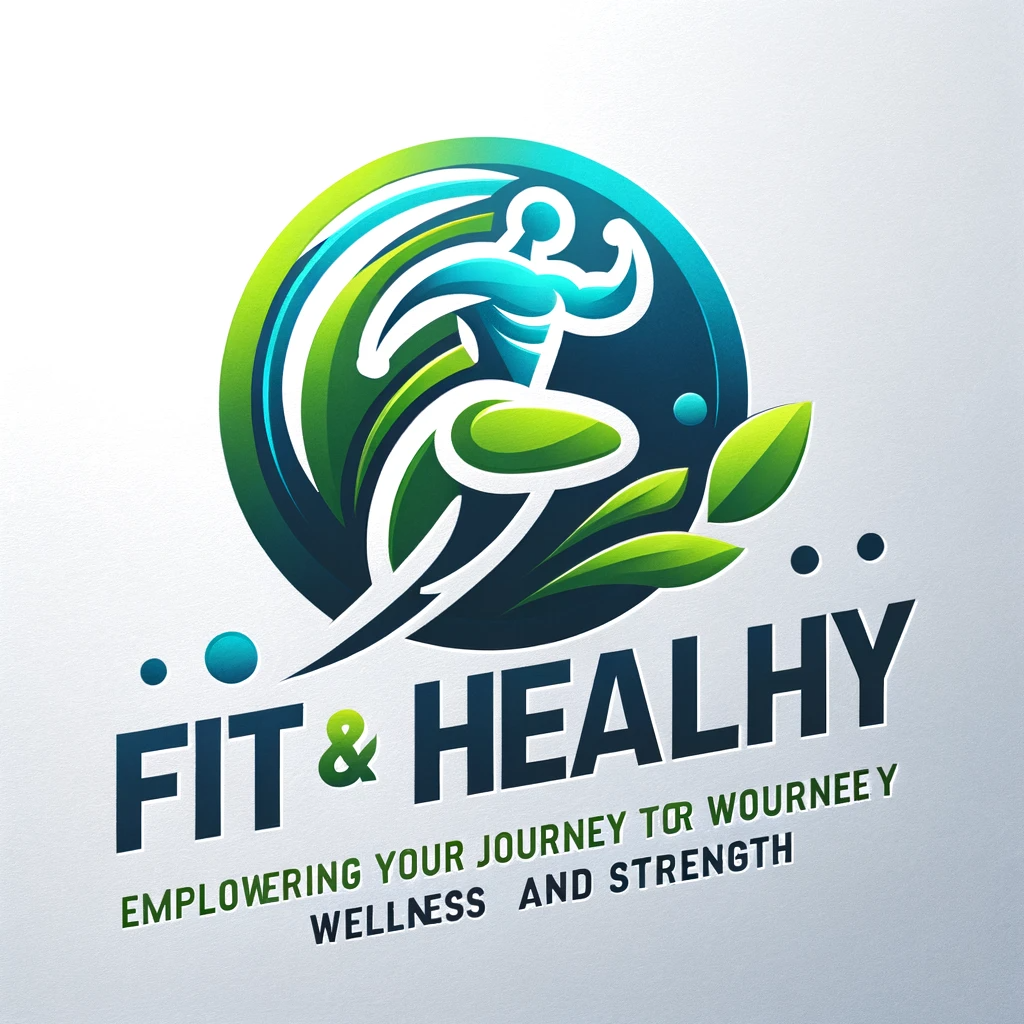


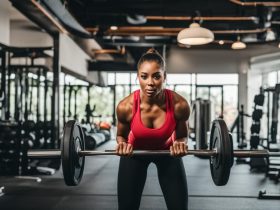

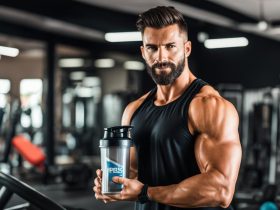




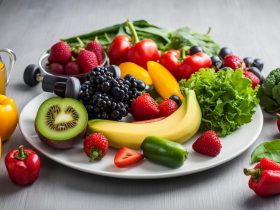
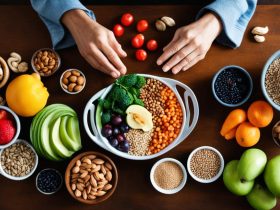
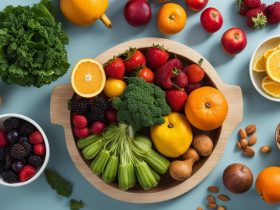
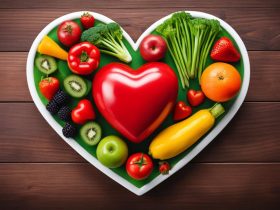
Leave a Reply